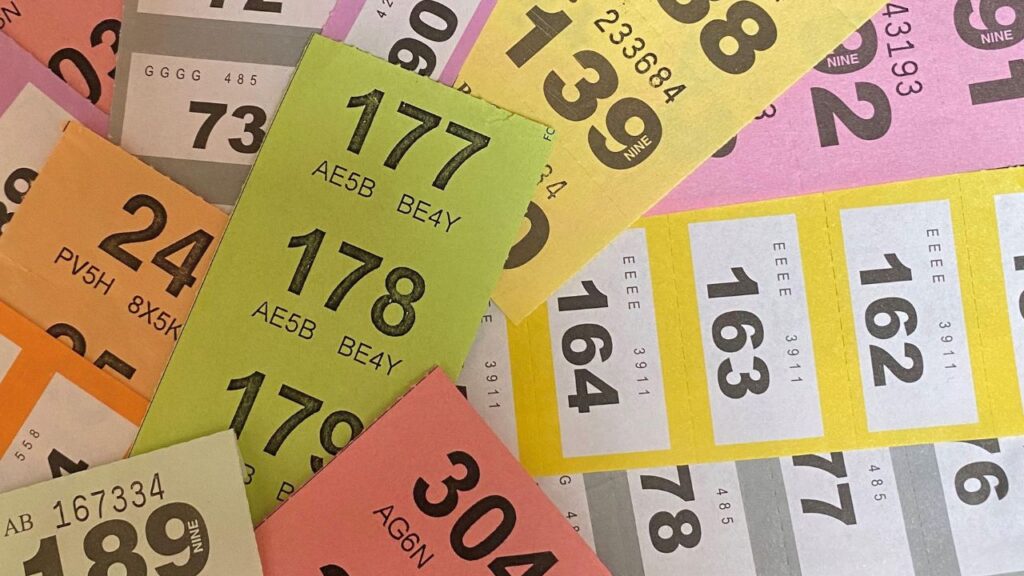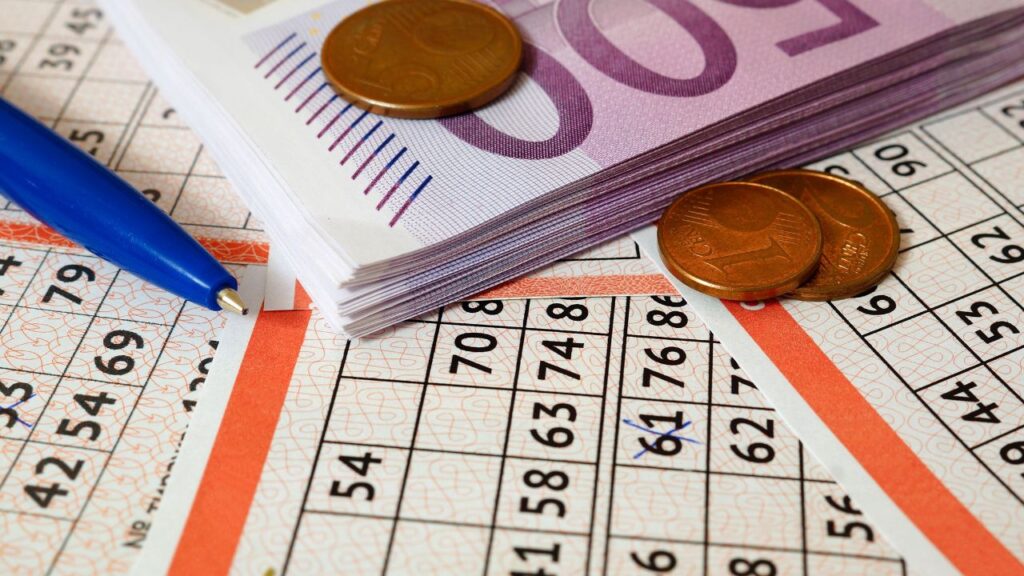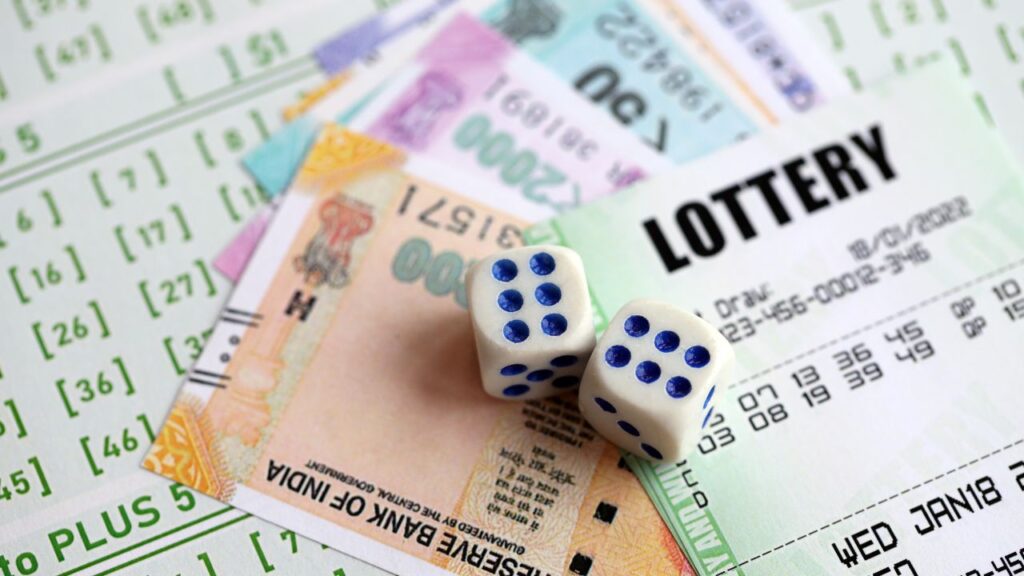Have you ever felt that winning the lottery is just for “lucky” people, while the rest of us keep tossing money into a bottomless pit? You’re definitely not alone. Many players wonder how to win the lottery without relying on pure chance or superstition. The truth is, while no system can guarantee a jackpot, there are smarter ways to play. From understanding your odds to choosing the right games, a little strategy goes a long way. Some folks even turn to the Best Lottery Prediction Software to help spot patterns or organize their picks more efficiently. In this guide, we’ll break down practical tips, common myths, and real strategies so you can approach your next ticket with confidence. Ready to uncover what actually works—and what’s just hype? Let’s dive in together.
Understanding Lottery Odds and Probability
Before you start picking numbers or testing out strategies, it’s essential to understand how lottery odds actually work. In big games like Powerball, the odds of winning the jackpot are astronomical—about 1 in 292 million. Compare that to some scratch-off tickets or smaller state games, where the odds can be closer to 1 in a few million or even better for lower-tier prizes.
Every draw is an independent event. That means no matter how many times a number has appeared (or hasn’t), it has the same chance of being drawn again. This randomness is built into the system to keep it fair and unpredictable.
No strategy—whether it’s picking birthdays, using hot and cold numbers, or leveraging the Best Lottery Prediction Software—can alter those core probabilities.
It’s a common misconception that certain patterns “owe you a win,” or that avoiding recent winners increases your chances. In reality, each draw resets the clock, and no number is ever due. Recognizing this truth can help you play smarter and avoid chasing illusions.
Smart Strategies to Improve Your Chances

While luck still rules every draw, adopting a few practical habits can help you play more efficiently—and feel better about your spending.
Buying More Tickets: Does It Really Help?
- Yes, but marginally. Each extra ticket increases your odds—but only in tiny increments. Buying 10 tickets in a 1-in-10 million game still leaves you at roughly 1-in-1 million.
- Set a clear budget so extra plays don’t become overspending.
- Avoid consecutive draws on impulse; plan your purchases instead.
Joining Lottery Pools or Syndicates
- Pool resources with friends, family, or coworkers to afford more combinations without breaking the bank.
- Use written agreements to avoid disputes over potential winnings.
- Stick to reputable online syndicate platforms if your local group isn’t an option.
Choosing Less-Popular Games With Better Odds
- State or regional lotteries often have smaller jackpots but far better winning probabilities.
- Scratch-off tickets can offer higher odds for lower-tier prizes—check the game’s published odds before buying.
- Look for games with fewer numbers to match; they inherently provide better chances.
Picking Numbers Strategically
- Frequency analysis: Study past draws to see which numbers appear more (or less) often—but remember, past results don’t dictate future outcomes.
- Balanced patterns: Mix high and low, odd and even numbers to avoid common clusters like birthdays.
- Wheeling systems: Create multiple tickets that cover a wider range of combinations, increasing the likelihood of hitting at least a partial match.
Setting a Consistent Play Schedule
- Play regularly, not impulsively. A set schedule prevents overspending and keeps ticket tracking simple.
- Automate entries through subscription services if available—no missed draws and better record-keeping.
- Track results in a spreadsheet or app to monitor spending and small wins over time.
Incorporating these disciplined strategies can’t guarantee a jackpot, but they do make your lottery experience more structured, budget-friendly, and—above all—fun.
Debunking Popular Lottery Myths

“Certain Numbers Are Luckier”
- Reality: Every number in a properly run lottery has the same probability of being drawn, no matter how “hot” or “cold” it seems.
- Why the Myth Persists: Our brains love patterns; when we see a number pop up twice in a month, we assume it’s special. In truth, it’s just random clustering.
“Quick Picks Never Win”
- Reality: Quick-pick tickets win jackpots all the time—often more than manually chosen numbers because most players use quick picks.
- Why the Myth Persists: When a manually selected ticket wins, the story feels more memorable, reinforcing the idea that personal picks are superior.
“Past Results Predict Future Draws”
- Reality: Lottery drawings are independent events. Previous outcomes don’t influence upcoming ones, even if a number hasn’t appeared in months.
- Why the Myth Persists: Gamblers’ fallacy—people believe something “due” must happen soon, even though probability resets each draw.
“Lottery Systems Guarantee Success”
- Reality: No wheeling strategy, frequency chart, or even the Best Lottery Prediction Software can override the mathematical odds. At best, such systems organize play or cover more combinations—but they don’t ensure jackpots.
- Why the Myth Persists: Aggressive marketing and anecdotal “success stories” give the impression that secret formulas exist, tapping into our desire for control over chance.
Why These Myths Endure
- Cognitive Biases: Humans are wired to seek patterns and meaning, even in random events.
- Selective Memory: Wins are celebrated and remembered; losses fade into the background.
- Confirmation Bias: People share stories that fit their beliefs, reinforcing misinformation.
- Marketing Hype: Some companies exaggerate claims to sell systems or software, keeping myths alive.
How to Use Lottery Prediction Software

What These Tools Claim to Do
Lottery prediction programs promise to crunch historical draw data, track “hot” and “cold” numbers, and generate number sets with a supposedly higher probability of success. Some even tout AI algorithms that “filter out 90 % of losing combinations.” In reality, they’re best viewed as sophisticated organizers and trend spotters—not magic crystal balls.
Overview of Popular Options
- lottery defeater software – Markets itself as an AI-driven platform with printable combos and deep filtering.
- Lotto Champ – Claims to use proprietary AI to eliminate low-probability picks and works with dozens of international games.
- lottery increaser – A web-based tool focused on real-time trend tracking and beginner-friendly dashboards.
Pros and Cons at a Glance
Pros:
- Saves time by auto-updating draw data
- Helps avoid obvious patterns like sequential numbers
- Adds structure and excitement to play
Cons:
- No software can change the fundamental odds
- Bold marketing claims may inflate expectations
- Some tools come with high upfront costs or mixed user support
Setting Realistic Expectations
Treat prediction software as an entertainment aid. Use it to organize pools, wheel combinations, or simply feel more strategic—but never assume it guarantees a jackpot. Set a budget for both tickets and software, and track wins and losses to stay grounded.
When Software Might Be Worth Trying
- You already play regularly and want a more systematic approach
- You enjoy analyzing data or experimenting with wheeling systems
- You’re part of a syndicate and need help generating multiple balanced tickets
- You value the convenience of auto-updated results and printable playslips
If those points resonate, exploring a reputable tool could enhance your lottery hobby—just keep the odds (and your wallet) in perspective.
Tips for Responsible Lottery Play

How to Set a Budget (and Stick to It)
- Decide on a weekly or monthly lottery allowance before you buy tickets.
- Treat this as entertainment spending—like streaming or coffee runs.
- Use cash or a prepaid card to avoid dipping into essential funds.
- Track every purchase in a simple spreadsheet or budgeting app to stay accountable.
Signs of Problem Gambling and How to Get Help
- Feeling anxious or irritable if you skip a draw.
- Hiding ticket purchases from friends or family.
- Chasing losses by spending more after a losing streak.
- If these sound familiar, call your country’s gambling helpline or visit ResponsibleGambling.org for confidential support.
Balancing Hope with Practicality
- Celebrate the excitement of “what if,” but remind yourself the jackpot odds remain steep.
- Focus on playing for fun, not as a financial plan.
- Set realistic goals—like aiming for occasional small wins or simply enjoying the thrill of the draw.
Keeping the Lottery Fun and Stress-Free
- Make it social: play with friends or join a workplace pool to share costs and excitement.
- Mix in free or low-cost games (raffles, sweepstakes) for the same adrenaline without extra spending.
- Schedule “lottery-free weeks” to reset and keep habits healthy.
Stories of Real Winners and What We Can Learn

Profiles of Lottery Winners and Their Habits
- Richard Lustig (US, seven-time winner): Played frequently, reinvested small prizes, used a disciplined budgeting system, and stuck to the same numbers.
- Mavis Wanczyk (MA, $758 M Powerball): Bought tickets on payday when she felt “lucky,” relied on family birthdays, and immediately sought legal and financial advice.
- Edwin Castro (CA, $2.04 B Powerball, 2023): Purchased a single quick-pick and stayed anonymous until claiming, then set up a trust for privacy and estate planning.
- Anonymous NJ Trust (NJ, $1.3 B Powerball, 2024): Joined a workplace pool; emphasized shared risk and used professionals to handle taxes and media.
Common Traits and Approaches
- Routine Play: Most winners had a consistent habit—whether weekly buys or pool participation.
- Budget Discipline: Even repeat players like Lustig capped spending to avoid debt.
- Ticket Tracking: Winners kept receipts or photo records to secure claims.
- Professional Advice: Nearly all high-tier winners hired lawyers, CPAs, and financial planners before going public.
How Winners Manage Sudden Wealth
- Trusts & LLCs: Many set up legal entities to shield identity and manage payouts.
- Diversified Investments: From municipal bonds to real estate, winners rarely keep all funds in cash.
- Charitable Giving: High-profile winners often establish foundations—both for tax planning and philanthropy.
- Lifestyle Caution: Financial planners advise against immediate big purchases; a “cooling-off period” helps avoid regret.
Important Lessons for Players
- Claim Strategy: Sign the ticket, secure it, and verify state deadlines.
- Assemble a Team: An attorney, tax pro, and financial advisor should be in place before claiming large prizes.
- Publicity Management: Decide early whether to stay anonymous (if allowed) or prepare a media statement.
- Long-Term Planning: Lump sum vs. annuity isn’t just a headline—model the tax impact and personal goals before choosing.
Expert Insights: What Mathematicians and Statisticians Say

Quotes From Probability Experts
- “Lottery odds are so steep that buying a ticket is closer to donating to a public fund than making an investment.” — Dr. Jordan Ellenberg, mathematician and author of How Not to Be Wrong.
- “Random means random. If you can predict it, it’s no longer a lottery.” — Dr. Persi Diaconis, Stanford statistician and former professional magician.
- “Patterns you see in past draws are human pattern-seeking, not mathematical evidence.” — Dr. Lisa Goldberg, UC Berkeley statistics professor.
Why Randomness Can’t Be Hacked
- Modern lotteries use rigorously tested ball machines or certified RNGs.
- Independent auditors verify every draw; any predictable bias would be caught quickly.
- Even if a number appeared five times last month, its probability today is unchanged—true randomness has no memory.
Skill Games vs. Pure Chance
| Aspect | Skill Games (e.g., Poker) | Lotteries (Pure Chance) |
|---|---|---|
| Influence of Decisions | High—strategy alters outcome | None—numbers are independent |
| Edge Over Time | Achievable with skill + bankroll management | Impossible; house edge remains constant |
| Variance | High but mitigatable | Extreme and unchangeable |
The Psychology Behind Chasing Wins
- Gambler’s Fallacy: Belief that a “due” number is more likely, despite identical odds.
- Near-Miss Effect: Getting 3 or 4 matching numbers feels like “almost winning,” motivating more play.
- Availability Bias: Media highlights big winners, making jackpots seem more attainable than statistics suggest.
- Hope & Control: Prediction tools give a sense of agency, even if they don’t change probabilities, which keeps players engaged.
Understanding these expert perspectives helps ground your expectations—and reminds you that while strategies can make play more organized, they can’t rewrite the math.
Alternatives to Traditional Lotteries

Exploring Raffles, Sweepstakes, and Charity Lotteries
- Raffles: Typically sell a limited number of tickets, boosting your odds compared to nationwide draws. Prizes range from cash to cars and vacation packages.
- Sweepstakes: Free or purchase-required entries run by brands or media outlets; winnings can include cash, electronics, or lifetime experiences.
- Charity Lotteries: Operated by nonprofits or hospitals—ticket proceeds fund good causes, and prizes often include sizeable cash jackpots or dream homes.
Benefits of Smaller Games and Local Draws
- Better odds: State or regional games often have far fewer number combinations than Powerball-style jackpots.
- Faster payouts: Local lotteries and scratch-offs usually pay smaller prizes quickly.
- Community impact: Money spent often stays within the state or supports local initiatives.
Online Lotteries and Legal Considerations
- Licensed operators only: Verify the platform holds valid gaming licenses in your jurisdiction.
- Age and location checks: Reputable sites use ID verification to comply with local laws.
- Tax obligations: Winnings from online draws are subject to the same taxes as traditional tickets—keep records for filings.
- Deposit limits: Use built-in tools on legitimate sites to cap spending and stay within budget.
Other Ways to Enjoy Games of Chance
- Skill-based competitions: Trivia apps, esports tournaments, or fantasy sports offer cash prizes with an element of ability.
- Casino promotions: Low-stakes slot or table game tournaments with small entry fees and modest pools.
- Free-to-enter contests: Social media giveaways, survey sweepstakes, and promo raffles cost nothing yet still deliver a thrill.
- Gamified savings apps: Some fintech tools reward consistent saving with random cash drawings, blending financial health with lottery-style excitement.
Exploring these alternatives can keep the fun alive while offering better odds, charitable benefits, or even new skill-based challenges.
Conclusion:
Winning big may be a long-shot, but mastering how to win the lottery is really about stacking small advantages in your favor—understanding odds, sticking to a budget, and choosing smarter tools. When you combine disciplined play with tech like lottery defeater software, Lotto Champ, or the budget-friendly lottery increaser, you transform guesswork into a more strategic, enjoyable hobby. Ready to put these insights into action? Explore each platform, pick the one that fits your style, and start playing with confidence—because the next ticket you buy could write an unforgettable chapter in your story. Click the links, test the strategies, and may the odds be ever in your favor!

